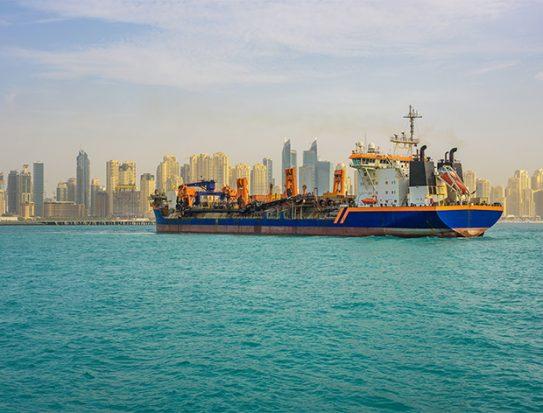Africa-Press – Mauritius. A United Arab Emirates oil trading company committed fraud when it arranged for part of a trade finance facility extended by Mauritian bank SBM to be dissipated to related entities and failed to repay more than US$21mn owed to the lender, a court in Dubai has ruled.
Renish Petrochem FZE secured a lending facility with SBM Bank in November 2017 under which the bank advanced payments to Renish’s supplier of crude oil, Prime Energy FZE.
Lanka, a Sri Lankan offshoot of the Indian Oil Corporation which had agreed to buy the cargoes, would then pay the bank via an account belonging to Renish.
According to a December 29 judgement handed down in the Dubai International Financial Centre Courts, the first three transactions were repaid to the bank without a hitch but three further advances totalling around US$30mn, between April and June 2018, were not.
Renish’s managing director, Hitesh Mehta, who personally guaranteed the facility, stopped contact with the bank after the fourth payment became overdue in June 2018 and a business intelligence firm engaged by SBM found in July that the Renish’s offices were locked and “apparently abandoned”.
Evidence presented by the bank shows that some of the funds received by Prime from the bank for the last two transactions were dissipated “within a matter of days” to an account belonging to Renish and another company, Petro Hub Energy FZE, which was controlled by Renish’s CEO.
SBM also alleged that Prime was complicit in the fraud and it was essentially operating as a single entity with Renish. But minutes before the October 2021 trial was scheduled to begin, the bank and Prime reached a confidential settlement so the judgement made no finding against the company.
Prime did not respond to a request for comment from GTR. The company’s website says it is based in Sharjah and was founded in 2012 “to satisfy the growing demand for oil and fuel products”.
Ali Dideh Var Sadr, a consultant, was delegated with running Prime’s operations at the time of the facility, according to the judgement. Renish and Mehta could not be reached for comment.
An archived version of Renish’s now-defunct website describes the company as a “manufacturer, exporter, importer, trader, supplier and distributor” of petroleum products across multiple markets.
The case has echoes of similar collapses and fraud allegations against small and medium-sized traders in recent years, particularly in Asia and the Middle East, which have left banks scrambling to recoup losses.
The rash of insolvencies and fraudulent trading activity, many of which were exposed when markets were battered by the outbreak of Covid-19 in 2020, have led many top commodities finance banks to shrink their exposure to the sector and focus on large traders.
Bank backflips on fake trade claims Renish and Mehta filed a defence in February 2021 but were not represented at the trial after their lawyers resigned.
The defence argued that the transfer of the funds from Prime to Renish and Petro Hub shortly after they were received from the bank was carried out in the normal course of business, but the judge, Justice Lord Angus Glennie, said that was not a sufficient explanation.
In his defence, Mehta said that in mid-2018 Renish “fell victim to a campaign of disinformation orchestrated by business rivals who appeared to have been in league with some of the senior staff at Renish”.
Mehta claimed “an unknown third-party, styling himself as ‘Truth of Renish’, circulated a malicious email falsely accusing Renish of illegal trading and fake accounting, with the intention of inflicting damage to Renish’s reputation and causing its demise”.
As a result, Mehta claimed, one of Renish’s banks pulled its entire credit line and attempted to cash a series of cheques drawn on the company, pushing it into insolvency.
The same unnamed bank filed a police report against Mehta, which he said rendered him unable to travel to the UAE. Despite securing a finding of fraud, Justice Glennie was critical of the way SBM pursued its case.
In its submissions to the court, SBM alleged that the facility was granted through fraudulent representations. It initially claimed all the transactions were shams and that no underlying oil shipments to Lanka took place.
However when challenged by the judge on its claim, SBM conceded that its only basis for the allegation was that the bank had written to Lanka “on a number of occasions and they had failed to reply”.
The judgement describes the bank’s position as “entirely unsatisfactory”. SBM later conceded that it had indeed been shown genuine contracts between Renish and Lanka in 2018 and that cargoes were shipped for at least the first three transactions.
Before the deal with Prime, Renish also used the bank’s facility for “high value” transactions with other suppliers, including the Abu Dhabi National Oil Company and Shell, which were all repaid on time, the judgement notes.
Glennie rejected the bank’s argument that Renish applied for the facility by making fraudulent representations, but agreed that the partial dissipation of the last two payments sufficiently established that fraud had occurred.
The same judge ruled in May 2021 that SBM was owed a total of US$31mn by Renish and Mehta based on the company’s breach of the facility contract. However the bank opted to pursue the case and seek a finding of fraud against Renish and Mehta, which led to the most recent judgement.
For More News And Analysis About Mauritius Follow Africa-Press







